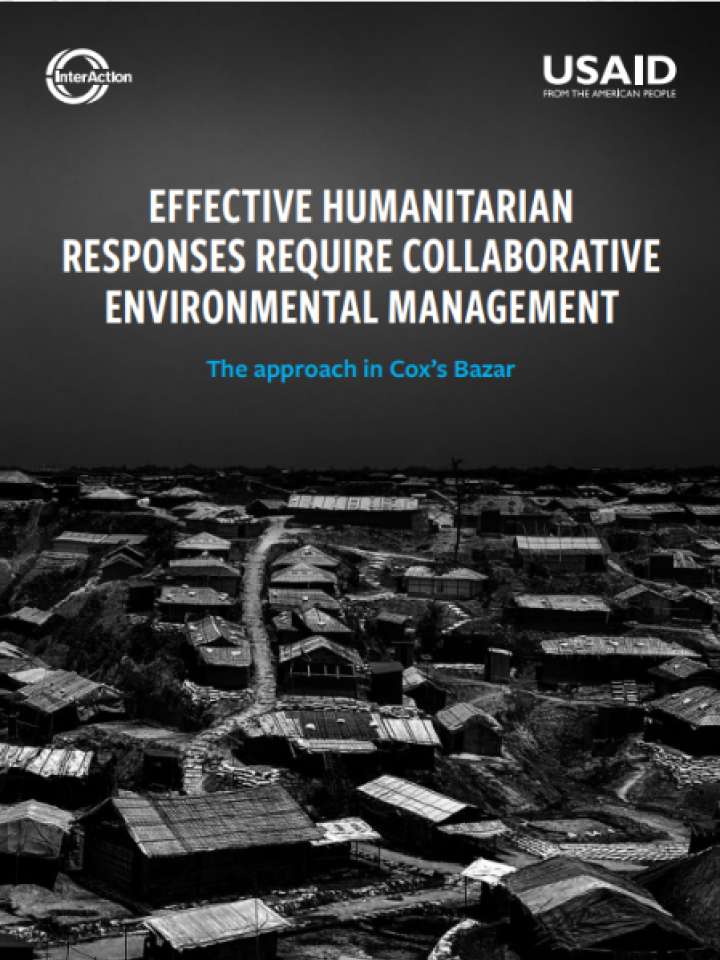Effective humanitarian responses require collaborative environmental management: The approach in Cox's Bazar
While humanitarian responses focus mostly on the emergency phase—like addressing lifesaving and immediate needs—addressing the impacts and risks of climate change is increasing in urgency. To these ends, InterAction conducted climate research and consultations to understand how climate change and environmental degradation impact humanitarian operations and what initiatives are being undertaken. Consultations revealed promising and laudable efforts by individual organizations within humanitarian sectors but underscored the current lack of strategy and the need for more collaborative environmental management.
This report underscores the importance of a multisectoral environmental management group established early in the crisis. Its mandate should extend beyond assessing environmental implications to encompass short- and long-term impacts, available capacity, and viable solutions. Furthermore, the report dispels the notion of a one-size-fits-all solution to environmental challenges, recognizing the inherent context specificity of environmental and climate-related impacts. The imperative for an early, whole-of-system approach in every response is underscored, cautioning against uncoordinated efforts that can lead to maladaptation.
Explore further
